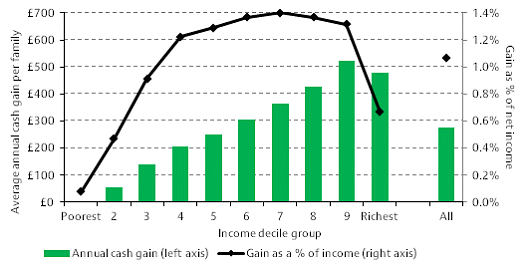Raising the personal allowance from £10,600 to £11,000
Woohoo! A pointless £6.66/month pay rise that will cost the treasury £billions without making a major difference to anyone's lives!
Duty cut on beer and cider
No doubt like last year it will make a meagre difference to the price of a pint while costing the treasury a fortune. Another pointless tax cut.
£1m inheritance tax break on properties passed to children
Another tax cut that will cost the treasury £billions. Wicked. Exactly what we need right now.
Increase in NI threshold to help lower paid workers
Could be interesting when combined with the increase in the income tax threshold, if the total is significant.
The scrapping of the annual tax return and introduction of 55 million individual online tax accounts
Given Universal Credit has been a roaring success, it's definitely time for another major government IT project

New loans for students targeted at those from poorer backgrounds
Because there isn't enough positive discrimination at University for 'poor' students...
Further crackdown on tax evasion
Yawn


 . However I tend to like paying his figure more
. However I tend to like paying his figure more  .
.
 . I was talking about the next few decades.
. I was talking about the next few decades.